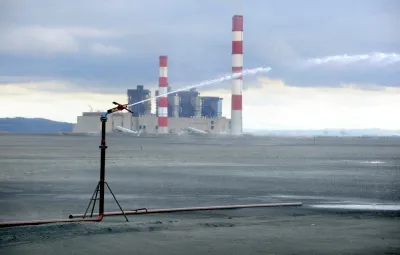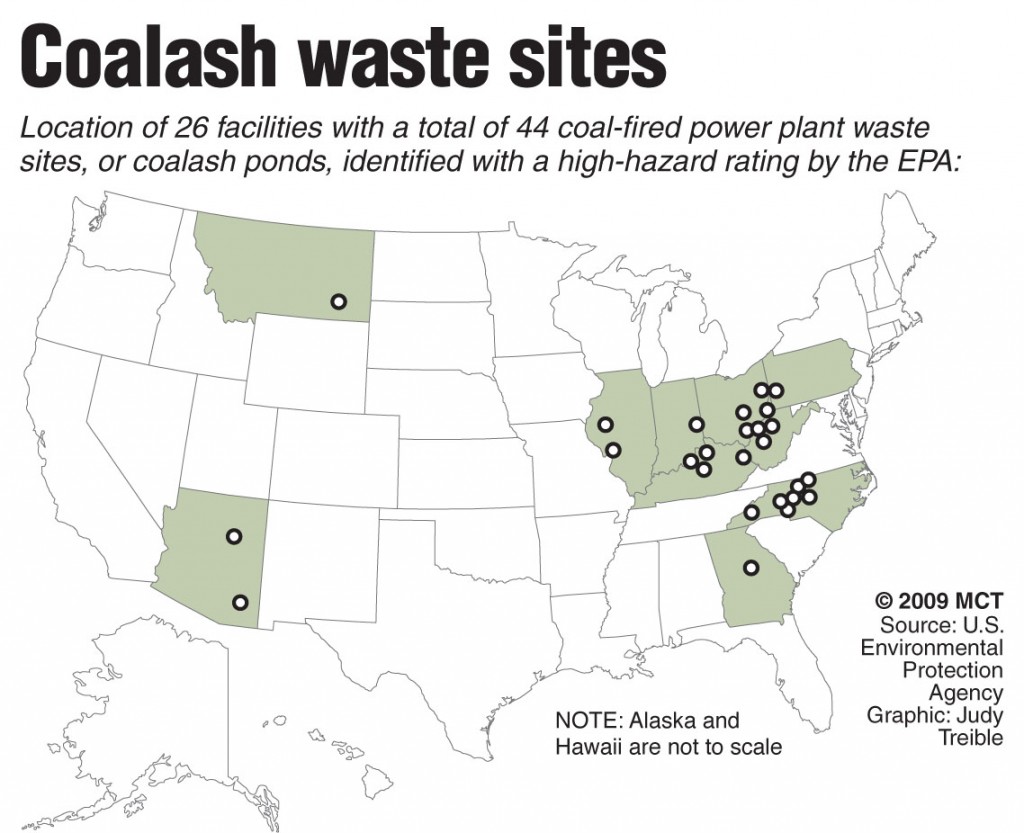Chatham County, North Carolina agreed to not oppose a planned coal ash landfill in exchange for $19 Million from Duke Energy, which would help fund environmental monitoring and disaster insurance.


Duke Energy faces a difficult challenge of how to dispose of 108 million tons of coal ash in North Carolina, and the recent deal with Chatham County is one step toward addressing the company’s ongoing dilemma over coal ash storage. Late last year NC Governor Pat McCrory appeared on CBS' 60 Minutes and spoke candidly about the utility’s environmental track record:
“I think the record’s been quite poor because, frankly, it’s been out of sight and out of mind,” said McCrory, a longtime Duke executive. He questioned how much Duke knew about potential structural problems at its ash ponds.
Duke Energy provides electric service across the Carolinas, Ohio and Indiana. The company’s struggle to safely contain the substance became national news earlier last year when 82,000 tons of coal ash mixed with 27 million gallons of contaminated water escaped into North Carolina’s Dan River, turning the river gray for miles. The company spent $15 Million containing the spill along with additional fines, however the event led to the discovery that most wells near ash ponds adjacent to Duke Energy facilities are contaminated. Groundwater testing revealed contamination at all 14 of Duke’s coal-fired power plants in the state, but Duke believes the contamination from leaching is naturally-occurring phenomenon.

Coal ash is leftover from burning coal to make electricity and contains toxins such as arsenic, chromium and lead. Coal power plants across the U.S. generate 140 million tons of coal ash annually, stored in 1,100 ponds mainly in the eastern states. North Carolina is home to 37 ponds, however there are 10 other states with more—Pennsylvania, Ohio, Indiana and Kentucky all have over 50.
Some locations, like Lee County, North Carolina, have expressed greater opposition to the prospect of hosting new toxic landfill sites, however. While Duke continues to address the issue and look for new places to safely store its toxic byproduct, events over the last year have also called attention to the overall lack of coal ash regulation at the federal level.Duke Energy is currently developing highly protective coal ash landfills in several counties, including the recently-approved Chatham County site. The landfills will be lined with an impermeable plastic membrane and will be equipped with equipment intended to monitor sites for at least 30 years.

FULL STORY: Chatham County agrees to take coal ash landfill for $19 million

Analysis: Cybertruck Fatality Rate Far Exceeds That of Ford Pinto
The Tesla Cybertruck was recalled seven times last year.

National Parks Layoffs Will Cause Communities to Lose Billions
Thousands of essential park workers were laid off this week, just before the busy spring break season.

Retro-silient?: America’s First “Eco-burb,” The Woodlands Turns 50
A master-planned community north of Houston offers lessons on green infrastructure and resilient design, but falls short of its founder’s lofty affordability and walkability goals.

Test News Post 1
This is a summary

Analysis: Cybertruck Fatality Rate Far Exceeds That of Ford Pinto
The Tesla Cybertruck was recalled seven times last year.

Test News Headline 46
Test for the image on the front page.
Urban Design for Planners 1: Software Tools
This six-course series explores essential urban design concepts using open source software and equips planners with the tools they need to participate fully in the urban design process.
Planning for Universal Design
Learn the tools for implementing Universal Design in planning regulations.
EMC Planning Group, Inc.
Planetizen
Planetizen
Mpact (formerly Rail~Volution)
Great Falls Development Authority, Inc.
HUDs Office of Policy Development and Research
NYU Wagner Graduate School of Public Service



























